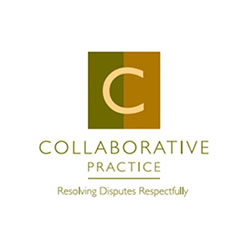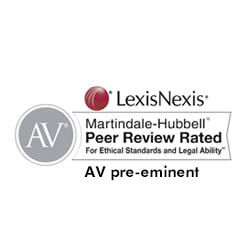What is Collaborative Law or Collaborative Practice?
Collaborative Law or Collaborative Practice is an innovative legal process in which parties involved in a legal dispute work together with lawyers and other professionals who are dedicated to resolving the case outside of court. Rather than battling in each other in litigation, the parties focus on reaching an amicable settlement through a collaborative approach. The parties focus on problem-solving, brainstorming solutions and using open communication to advance their interests.
What are the benefits of Collaborative Law or Collaborative Practice?
There are several benefits to Collaborative Law or Collaborative Practice. Because the parties are openly communicating, they can freely share information with each other without the additional time and expense related to discovery requests. They can share the cost of appraisers or other experts. By working together, they can identify relevant issues and work together to solve them. Collaborative Practice helps insulate children from the dispute so that they are not negatively impacted by the litigation process. Collaborative Practice is often more affordable than litigation since all of the parties are working together, including the lawyers.
Is Collaborative Law or Collaborative Practice binding?
The parties enter into Collaborative Law or Collaborative Practice voluntarily. They do not have to agree to use a Collaborative Practice approach if they do not like. However, many parties are able to amicably resolve their legal disputes by taking advantage of the Collaborative Practice process. If the parties reach an agreement in Collaborative Practice, they present this agreement to the court to incorporate into an official court order, which is binding on the parties. If the parties are unable to reach an agreement through Collaborative Practice, the attorneys must recuse themselves from the case and the parties hire new lawyers to represent them. Usually, nothing previously discussed in collaborative law sessions is binding on the parties unless the parties agree otherwise.
What is the difference between Collaborative Law or Collaborative Practice and mediation?
Collaborative Law or Collaborative Practice involves the parties and their attorneys along with other professionals working together through structured negotiations. It empowers the parties to be an integral part of resolving their dispute with the help of supportive professionals. Mediation uses the help of a third-party professional who is neutral. The mediator uses conflict resolution skills to enhance the communication between the parties and motivate them to settle their dispute.
Is mediation better than going to court?
Mediation is often better than going to court. When the parties go to court, they lose control of the ability to determine the outcome of their case. The judge can make decisions that are different than the parties would have made. Additionally, being adversaries in court often leads to harm to the remaining relationship between the parties. Mediation often allows the parties to have a respectful exchange with each other that does not derail their already fragile relationship. Additionally, mediation is often a much more affordable way to resolve legal issues and family matters.
How do mediating spouses protect their legal rights?
Mediating spouses can bring their attorneys with them to mediation Even if the attorneys are not in the mediation sessions, the “support” or “review” attorneys can advise the parties as to their rights and confirm that any agreement is reasonable. During private sessions, the attorney can explain how making certain decisions will impact their legal rights so that the client is completely informed when going through this process. Additionally, mediating spouses can ask other professionals to be involved in the process, such as financial consultants or the children’s therapist.
Will what we discuss in mediation be repeated in court?
One of the major benefits of mediation is confidentiality. As these discussions are made to potentially settle the dispute (known as “Settlement Talks”), they are usually prohibited from being introduced in a later court session. As such, what is said during these mediation sessions does not usually become part of the official court record. Any agreement that is made in mediation is presented to the court to be incorporated in any court order as a written agreement.
Do we need to bring any documents to the first mediation session?
Prior to mediation, the mediator may reach out to the parties and explain what, if anything, is necessary for the first mediation process. Every mediator approaches the process differently. Some may ask the parties to come with a summary of where they are in the case or the discovery that has been exchanged. Some may ask the parties to come up with a template for parenting time and responsibilities. Some may prefer to have a clean slate and may not ask for any information.
How long does divorce mediation take?
Once the mediation is scheduled, the case may be resolved in one or more sessions. The amount of time that it takes to complete mediation depends on several issues, such as the complexity of the legal issues involved, the number of issues to resolve and the parties’ willingness to listen to each other and maintain an open mind to potential resolutions and options for solutions.
What if my spouse and I can’t talk to each other or be in the same room as each other?
During mediation, the mediator may separate the parties into different rooms . The mediator can then go back and forth between these different spaces and have private conversations with each party (the “caucus” or “shuttle diplomacy” model). This allows the mediator to gather important information and to present offers and counteroffers to the parties. In this way, the parties can participate in the process without having to be in the same room as each other.
Practice Areas
Contact Us



